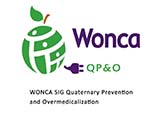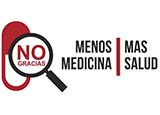Equity & Equality: disparities in healthcare provision, marginalized populations, conflicts of interest driving inequity.
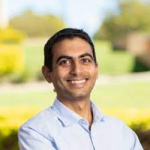 Assistant Professor Loai Alboquari is an NHMRC Emerging Leader Fellow and Assistant Professor at the Institute. His research expertise includes evidence synthesis, evidence-based practice, shared decision making, and overdiagnosis and overtreatment. He is a medical doctor (MD) from Palestine and completed an MSc degree in clinical epidemiology at the Ludwig Maximilian University of Munich.
Assistant Professor Loai Alboquari is an NHMRC Emerging Leader Fellow and Assistant Professor at the Institute. His research expertise includes evidence synthesis, evidence-based practice, shared decision making, and overdiagnosis and overtreatment. He is a medical doctor (MD) from Palestine and completed an MSc degree in clinical epidemiology at the Ludwig Maximilian University of Munich.

Professor France Légaré Initially trained as an architect and subsequently trained as a family doctor in Quebec City, with a Master’s degree in community health, France Légaré is a Professor in the Department of Family Medicine and Emergency Medicine at Laval University. In 2005, she received her PhD in Population Health from the University of Ottawa under the supervision of Dr. Annette O’Connor. That same year, she obtained a Clinical Researcher Award from the Fonds de la recherche en santé du Québec (FRSQ) for her research program: « Primary care health professionals: from knowledge brokers to decision-making brokers ».
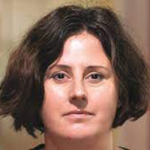
Dr. Margaret McCartney is a general practitioner, freelance writer and broadcaster based in Glasgow, Scotland. McCartney is a vocal advocate for evidence-based medicine. McCartney was a regular columnist at the British Medical Journal.
Sustainability and lessons learned from COVID-19: repurposing healthcare after a pandemic.
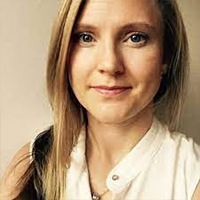
Dr. Minna Johansson
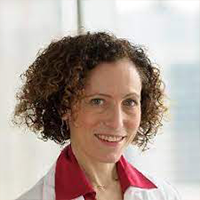 Dr. Deborah Korenstein is an internal medicine specialist with many years of clinical experience as a primary care physician and academic experience as a researcher and educator of physicians in training. Dr Korensteins work at Memorial Sloan Kettering focuses on the value of care for patients with cancer, seeking to minimize unnecessary and potentially harmful tests and treatments and ensure that our patients receive the helpful care they really need. This work involves both specific quality-improvement initiatives and research into the factors that lead to patients’ receiving unneeded care. The ultimate goal is to understand how and why lower-value care takes place and to design and implement programs to optimize care delivery.
Dr. Deborah Korenstein is an internal medicine specialist with many years of clinical experience as a primary care physician and academic experience as a researcher and educator of physicians in training. Dr Korensteins work at Memorial Sloan Kettering focuses on the value of care for patients with cancer, seeking to minimize unnecessary and potentially harmful tests and treatments and ensure that our patients receive the helpful care they really need. This work involves both specific quality-improvement initiatives and research into the factors that lead to patients’ receiving unneeded care. The ultimate goal is to understand how and why lower-value care takes place and to design and implement programs to optimize care delivery.
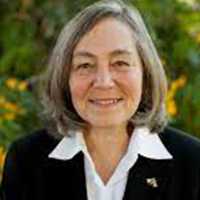
Dr. Wendy Levinson is a Canadian physician and academic. She is the Chair of Choosing Wisely Canada, “a campaign to help physicians and patients engage in conversations about unnecessary tests, treatments and procedures”. She is also Professor of Medicine at the University of Toronto.
The role of specialists in generating Overdiagnosis and their efforts to mitigate it.
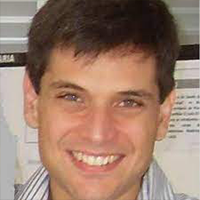 Associate Professor Luis Correia
Associate Professor Luis Correia
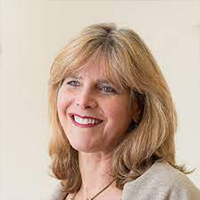
Prof. Laura Esserman is a surgeon and breast cancer oncology specialist. She is the director of the Carol Franc Buck Breast Care Center at the University of California, San Francisco School of Medicine. She leads the I-SPY trials, Athena Breast Health Network and the WISDOM study. Prof. Esserman has worked at UCSF to develop interdisciplinary teams of clinicians and researchers to bring the best care to patients and find the best platform to integrate translational research and improve the delivery of breast cancer care. In 2005, she received the NCI SPORE Investigator of the Year Award, an internationally recognized honor and designation.
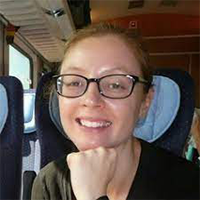 Luise Kazda PhD candidate and research assistant at the University of Sydney. Exploring ADHD as a model for sustainable healthcare - The thesis aims to develop a model for sustainable healthcare based on an in-depth analysis of attention deficit hyperactivity disorder (ADHD) in children and adolescents in Australia. The model will be utilised to further understanding of, and efforts for, sustainable diagnosis and treatment patterns in other mental health conditions. This overall aim will be met by quantitatively estimating overdiagnosis in ADHD and in the associated overtreatment. Subsequently, unnecessary social (incorporating health), financial and environmental costs will be quantified and ways to reduce unsustainable patterns in ADHD diagnosis and treatment explored.
Luise Kazda PhD candidate and research assistant at the University of Sydney. Exploring ADHD as a model for sustainable healthcare - The thesis aims to develop a model for sustainable healthcare based on an in-depth analysis of attention deficit hyperactivity disorder (ADHD) in children and adolescents in Australia. The model will be utilised to further understanding of, and efforts for, sustainable diagnosis and treatment patterns in other mental health conditions. This overall aim will be met by quantitatively estimating overdiagnosis in ADHD and in the associated overtreatment. Subsequently, unnecessary social (incorporating health), financial and environmental costs will be quantified and ways to reduce unsustainable patterns in ADHD diagnosis and treatment explored.
Medicalizing citizens: the harms of screening, disease thresholds, industry influences, the role of media.
 Prof. Timothy Caulfield is a Canadian professor of law at the University of Alberta, the research director of its Health Law Institute, and current Canada Research Chair in Health Law and Policy. He specializes in legal, policy and ethical issues in medical research and its commercialization.
Prof. Timothy Caulfield is a Canadian professor of law at the University of Alberta, the research director of its Health Law Institute, and current Canada Research Chair in Health Law and Policy. He specializes in legal, policy and ethical issues in medical research and its commercialization.
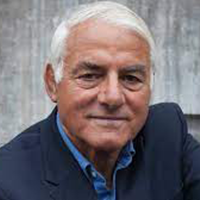 Prof. Allen Frances is an American psychiatrist. He is currently Professor and Chairman Emeritus of the Department of Psychiatry and Behavioral Sciences at Duke University School of Medicine. He is best known for serving as chair of the American Psychiatric Association task force overseeing the development and revision of the fourth edition of the Diagnostic and Statistical Manual of Mental Disorders (DSM-IV).
Prof. Allen Frances is an American psychiatrist. He is currently Professor and Chairman Emeritus of the Department of Psychiatry and Behavioral Sciences at Duke University School of Medicine. He is best known for serving as chair of the American Psychiatric Association task force overseeing the development and revision of the fourth edition of the Diagnostic and Statistical Manual of Mental Disorders (DSM-IV).
During the development of the current diagnostic manual, DSM-5, Frances became critical of the expanding boundaries of psychiatry and the medicalization of normal human behavior, problems he contends are leading to the overdiagnosis and overtreatment of the “worried well” and the gross undertreatment of the severely ill. in severe cases of mental disorder, and an integrated, biopsychosocial approach to psychiatry.
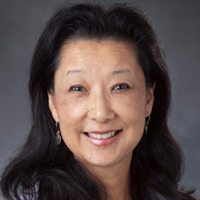
Prof. Shelly Hwang is an American breast cancer oncologist. She is the Mary and Deryl Hart Professor of Surgery at the Duke Cancer Institute and Duke’s first female chief of breast surgery. Committed to improving the care of patients with breast cancer Prof. Hwang was named one of Time magazine’s 100 Most Influential People for 2016.
Promotional messaging vs neutral messaging – impact on individual breast screening decisions when information is suppressed.
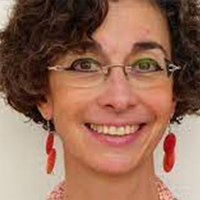 Dr. Cécile Bour specialized in medical imaging and radiodiagnosis in Reims and Besançon, then established as practitioner in a group medical office based the Messina region (Lorraine) in 1993. Dr Bour started the senology in 1995 and then joined the departmental organization for breast cancer screening in Moselle, the AMODEMACES, joining the committee of mammography reviewers (the second reading of mammograms). Resigning from AMODEMACES in 2015, no longer being convinced of this public health system. Dr Bour became a member of Formindep (French medical non-profit organization for an independent training of medical doctors) and founded the non-profit organization Cancer Rose, which fights for an objective information for women on breast cancer screening.
Dr. Cécile Bour specialized in medical imaging and radiodiagnosis in Reims and Besançon, then established as practitioner in a group medical office based the Messina region (Lorraine) in 1993. Dr Bour started the senology in 1995 and then joined the departmental organization for breast cancer screening in Moselle, the AMODEMACES, joining the committee of mammography reviewers (the second reading of mammograms). Resigning from AMODEMACES in 2015, no longer being convinced of this public health system. Dr Bour became a member of Formindep (French medical non-profit organization for an independent training of medical doctors) and founded the non-profit organization Cancer Rose, which fights for an objective information for women on breast cancer screening.
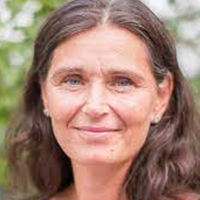
Dr. Mette Kalager is a trained surgeon and has been working at Telemark Hospital and Oslo University Hospital as a general surgeon and breast cancer surgeon. From 2004 to 2006, Dr Kalager was the head of the Norwegian Breast Cancer Screening Program, a public screening program offering biennial mammography to women aged 50-69 years old. In addition to mammography screening, the program focuses on quality of care, and requires that all hospitals within the program establish multidisciplinary breast units, where specialized radiologists, radiologic technologists, pathologists, surgeons, oncologists, and nurses manage the care of all patients, regardless of age. During her years as a surgeon and later as the head of the breast cancer screening program, Dr. Kalager became interested in issues of the reorganization of breast cancer care and its significance on the effects of mammography screening programs.
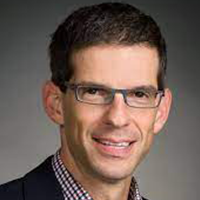
Prof. Scott Klarenbach is a Professor in the Department of Medicine at the University of Alberta. He received his medical training at the University of Alberta, and completed his MSc in Health Economics at the University of York, United Kingdom. His research interests include health outcomes and health economics research has conducted numerous economic evaluations and health technology assessments for both chronic and acute conditions. He is currently Chair of the Alberta Expert Committee on Drug Evaluation and Therapeutics, member of the Canadian Task Force on Preventative Health Care, co-Scientific Director of the Kidney Health Strategic Clinical Network, and holds the Kidney Health Research Chair.
Clinical Practice: Other dimensions of ODx, overtesting and the harms of too much medicine.
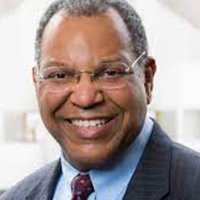
Prof. Otis Brawley is an American physician and the Bloomberg Distinguished Professor of Oncology and Epidemiology at Johns Hopkins University. As the chief medical and scientific officer and executive vice president of the American Cancer Society, Brawley is responsible for promoting the goals of cancer prevention, early detection, and quality treatment through cancer research and education. Professor of haematology, medical oncology, medicine and epidemiology at Emory University. He is also a medical consultant to the Cable News Network (CNN).

Dr. Guylène Thériault with a medical degree from the Université de Montréal, Dr. Guylène Thériault, who did her residency at McGill University, also has a degree in evidence-based healthcare from the University of Oxford, England.
A family physician since 1996, Dr. Thériault has been member of the clinical leaders group of Choosing Wisely Canada since its creation.In addition to her clinical duties, Dr. Thériault has been teaching evidence-based medicine and shared decision-making to students, residents and physicians for several years. Since 2013, Dr. Thériault has given numerous presentations on the topic of overdiagnosis to physicians and health care professionals. She is also a speaker at various events for patients, where she covers a number of topics, including screening, overdiagnosis and shared decision-making. A member of the Board of Directors of the Québec Medical Association since April 2016, Dr. Thériault was president of the CMDP of the CISSS de l’Outaouais in 2016-2017.Appointed to the position of Assistant Dean, Distributed Medical Education, at McGill in 2016, Dr. Thériault is the founder of the centre for the advancement of evidence-based health care, a Web site that proposes tools to help incorporate prevention in clinical practice.
@ebmgatineau
Marisa Vigna joined Patient and Family Centred Care in 2005. She is now a Junior High Teacher. “Being a member of Child, Adolescent & Yong Adult Connections (CAYAC) has given me the opportunity to witness the power of the youth voice and how it can positively impact healthcare. The youth I have met through this group have been very inspirational. By sharing our experiences with others, we have been able to make improvements to the healthcare system, which has been very rewarding. Moving into the role of Youth Support Mentor for CAYAC has allowed me to provide guidance for the members to help them find their voice. Watching the youth become confident, passionate, and effective leaders, assures me that the incredible legacy of CAYAC will continue. It has been an honour to have been a part of such an amazing group!”
The role of health systems and performance measures in Overdiagnosis.

Prof. Todd Anderson is a clinician scientist at the University of Calgary in the Department of Medicine. He obtained his Doctor of Medicine degree at the University of Calgary and then undertook residency training in Internal Medicine, Cardiology and Interventional Cardiology in Calgary. He pursued further research training in coronary physiology at the Brigham and Women’s Hospital at Harvard Medical School. Dr. Anderson returned to the University of Calgary in 1995 and is currently a Professor of Medicine within the Cumming School of Medicine. He has been funded by the Alberta Heritage Foundation for Medical Research, the Alberta Heart and Stroke Foundation, the Canadian Institutes of Health, the Canadian Diabetes Association, and holds numerous physician initiated industry grants. Dr. Anderson’s research interests are in the evaluation and treatment of endothelial dysfunction in humans.
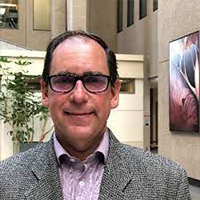 Prof. Eddy Lang is the Academic Department Head and a Professor in the Department of Emergency Medicine at the Cumming School of Medicine, University of Calgary, and the Clinical Department Head for Emergency Medicine, Calgary Zone, Alberta Health Services. He is also a senior researcher at Alberta Health Services. He co-chaired the 2007 Academic Emergency Medicine Consensus Conference on Knowledge Translation which remains an ongoing interest.
Prof. Eddy Lang is the Academic Department Head and a Professor in the Department of Emergency Medicine at the Cumming School of Medicine, University of Calgary, and the Clinical Department Head for Emergency Medicine, Calgary Zone, Alberta Health Services. He is also a senior researcher at Alberta Health Services. He co-chaired the 2007 Academic Emergency Medicine Consensus Conference on Knowledge Translation which remains an ongoing interest.
Dr. Lang is a member of the GRADE working group at the International Liaison Committee on Resuscitation. He has led the development of GRADE-based clinical practice guidelines in pre-hospital care in Canada and the US. Dr. Lang is also an award-winning educator having received recognition at both university, national and international levels.
He also serves as Senior Associate Editor for the Canadian Journal of Emergency Medicine, Associate Editor for ACP Journal Club and the International Journal of Emergency Medicine. He is also writes a quarterly column for the Calgary Herald on Evidence-Based Medicine.
@EddyLang1
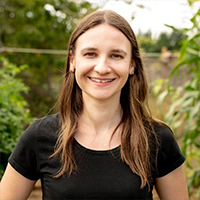 Dr. Jessica Otte a leader passionate about transforming Canada’s health care system. With a focus on helping patients get the right amount of care because in medicine more is not always better. Read more.
Dr. Jessica Otte a leader passionate about transforming Canada’s health care system. With a focus on helping patients get the right amount of care because in medicine more is not always better. Read more.




